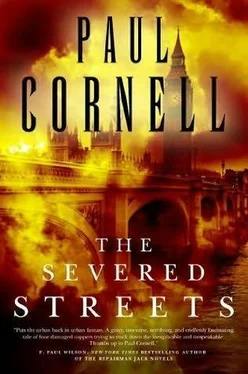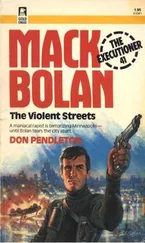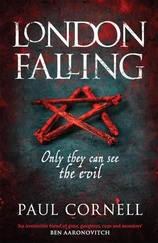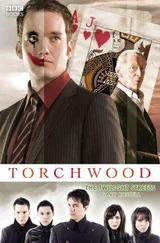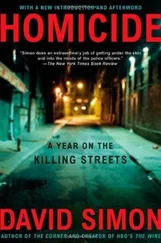Paul Cornell - The Severed Streets
Здесь есть возможность читать онлайн «Paul Cornell - The Severed Streets» весь текст электронной книги совершенно бесплатно (целиком полную версию без сокращений). В некоторых случаях можно слушать аудио, скачать через торрент в формате fb2 и присутствует краткое содержание. Жанр: sf_postapocalyptic, на английском языке. Описание произведения, (предисловие) а так же отзывы посетителей доступны на портале библиотеки ЛибКат.
- Название:The Severed Streets
- Автор:
- Жанр:
- Год:неизвестен
- ISBN:нет данных
- Рейтинг книги:5 / 5. Голосов: 1
-
Избранное:Добавить в избранное
- Отзывы:
-
Ваша оценка:
- 100
- 1
- 2
- 3
- 4
- 5
The Severed Streets: краткое содержание, описание и аннотация
Предлагаем к чтению аннотацию, описание, краткое содержание или предисловие (зависит от того, что написал сам автор книги «The Severed Streets»). Если вы не нашли необходимую информацию о книге — напишите в комментариях, мы постараемся отыскать её.
The Severed Streets — читать онлайн бесплатно полную книгу (весь текст) целиком
Ниже представлен текст книги, разбитый по страницам. Система сохранения места последней прочитанной страницы, позволяет с удобством читать онлайн бесплатно книгу «The Severed Streets», без необходимости каждый раз заново искать на чём Вы остановились. Поставьте закладку, и сможете в любой момент перейти на страницу, на которой закончили чтение.
Интервал:
Закладка:
Paul Cornell
The Severed Streets
PROLOGUE
London in the summer.
One fine day and don’t the English go mad? Every square of grass suddenly acquires a PA with a sandwich and a book about bondage. Sound seems to carry further. Music and news catch you unawares.
‘Police marching in Trafalgar Square, in advance of the forthcoming vote, chanting they want the right to strike…’
White-legged men in ridiculous shorts. Socks under sandals.
‘In the shadow of that fucking ridiculous-… You know what we need down here? Not an “Olympic Velodrome”! What’s it for now?’
Pimm’s with the sun shining off the pitcher. Furrowed brows are now white lines on pink.
‘Cuts in front-line policing, never mind the specialist units. If the riots continue, if the Summer of Blood arrives, there will be areas where there are riots, where the police will not be able to go!’
In the evenings, crowds spill out of the pubs onto the warm pavement. At six in the evening, you can hear the number drone of cricket scores on the radio.
‘They are expecting us to work for free, when they’ve sold this country…’
Wimbledon and Glastonbury and the Proms …
‘Sieg heil! Sieg heil! Sieg heil!’
There’s something about the blank summer sky — when the endless dog day, global-warming, tufty storm clouds part and unseasonal shivers give way to proper hay fever — that demands fire. Sparks in the blue black. But sparks sink back to the ground. Where the sparks land, there is fire.
There’s a car going past the ends of streets. The car is polished so the sun reflects off it. There are pools of shadow at the end of every street. In every corner that stays dark there’s a beggar now, an addict or a whore.
This is my car. I’m in it. It’s polished like this because of me. It’s a big rich car because of me.
What? Is that me? Is this me now, in this big car?! How did that happen? Who does this summer belong to? Who’s coming?
* * *
Michael Spatley MP, chief secretary to the Treasury, woke with a gasp. He was in the back of his official air-conditioned car, but he was sweating. Light was sliding across his face. He looked out through the tinted windows, and there were the reassuring streets of London. He must have fallen asleep almost immediately when they’d left the House of Commons. They hadn’t even reached Green Park yet. The traffic on Victoria Street was heavy this evening. Spatley loosened his tie and let out a long breath. He’d been having such terrible dreams lately. He always woke up feeling as if he was being accused of something.
He really should find a weekday flat closer than Kensington. Now he was in the Cabinet, he could afford it, just about. His title sounded so grand, but the pay was actually painfully less than he could have earned in industry. The general public just didn’t get that. An unexpected smell came to him, from outside the car. He hit the button to lower the window. It didn’t work.
‘Sorry, sir,’ said Tunstall. Tunstall was Spatley’s regular driver from the Ministerial Car Service. He had a finger to his communication earpiece. ‘I’ve switched on the security features. There’s a problem up ahead. We’ll be turning off in a sec and going the pretty way.’
‘Thanks, Brian.’ The smell was of smoke. A big fire — not just wood, but tyres and that stench of hot tar, way beyond the scent of baking streets. ‘What’s going on?’
‘You know — the protests. Okay, here we go.’ He swung the wheel, the angle of light changed across the car interior, and they were off down a side street where shops lined the lower floor of the surrounding tall buildings.
It was good to be on first-name terms with one’s driver. Spatley liked the way Tunstall dealt with whatever got in their way, as if life in the capital was one big traffic jam to be slipped around. Spatley took his iPad from his bag and checked Sky News.
‘… incidents in Peckham, where police have yet to arrive, report residents. Shop owners are taking to the streets in an effort to protect their property, some armed with makeshift weapons. Meanwhile, unscheduled anti-cuts protests by flash mobs have slowed traffic to a halt in parts of central London…’
That was new: ‘flash mob’ now an offhand part of the news vocabulary. A month ago that would have been ‘so-called’. He watched the images for a while: kids in Peckham in hoods or with scarves over their faces, running, in the sunshine, which looked odd, to see all that energy while it was still light. Cut to a mass of kids who looked much more middle class, bushy beards and skinny shirts, rushing into the foyer of some big corporation. Spatley watched the protestors; many of them were holding their phone cameras in the air, like crosses to repel evil, as they upended a vat of what looked like blood but was surely some sort of dye onto the PA’s chair. That imagery wouldn’t play well for them: a scared black PA, chubby, nice, furious at them. The problem was that you couldn’t see their faces, with the front row of the protestors wearing those aristocrat masks with top hats, some of them sporting the little capes.
To him, those masks just looked like giving in. As if revealing who you were these days was not just dangerous, as they wanted to imply, but actually impossible. Face coverings weren’t allowed at certain protests now; he’d voted for that legislation. He’d thought of Muslim women as he did it, and hoped for some care to be taken in the specifics, but, well, the debate just hadn’t gone in that direction.
He noted that there was long brunette hair spilling out of the back of one of the masks in the news clip, small, youthful breasts filling out the crisp white shirt. No silver-topped walking canes this time, though, not since the first of these protests, when the police had classed the canes as weapons and charged right in, and several of the protestors had suddenly understood what they’d got into. ‘Protestors’ — was that the right word, even? I mean, come on, they talked about being against ‘the cuts’ — that was all he ever heard from them, ‘cut cut cut’ — but could many of them even sum up the economic case against? ‘What do we want?’ ‘It’s complicated!’ That had got a laugh and a groan of annoyance at the same time from the audience on Have I Got News for You the other night, as if a satirical show should only have a go at the government and not at a bunch of bloody students. He wished he could sit them down and try to persuade them that he and his colleagues on the Liberal Democrat side of the Coalition were actually doing their best to hold the fucking Tories back.
Or … well, that was what they kept saying to other people and to each other. It was more that the presence of him and his colleagues made the fucking Tories even more like the fucking Tories, because they had to keep proving themselves to be so damned hardcore. He kept finding the images coming unbidden into his head: people dragged out of shops and put into vans; Orwellian signs about reporting illegal immigrants; reporters being told that they had no right to know. Wasn’t this exactly what he’d campaigned against, not very long ago?
He wasn’t going to let himself give in to hopelessness. If he could reveal what he’d discovered in the last few weeks, those ‘Toff’ protestors in the masks would be glad he was still in government. Then maybe the Coalition would mean something. Then maybe he would mean something. Because he was actually on the point of demonstrating that there was something much, much worse just under the surface — something he could root out and bring into the light.
Читать дальшеИнтервал:
Закладка:
Похожие книги на «The Severed Streets»
Представляем Вашему вниманию похожие книги на «The Severed Streets» списком для выбора. Мы отобрали схожую по названию и смыслу литературу в надежде предоставить читателям больше вариантов отыскать новые, интересные, ещё непрочитанные произведения.
Обсуждение, отзывы о книге «The Severed Streets» и просто собственные мнения читателей. Оставьте ваши комментарии, напишите, что Вы думаете о произведении, его смысле или главных героях. Укажите что конкретно понравилось, а что нет, и почему Вы так считаете.
